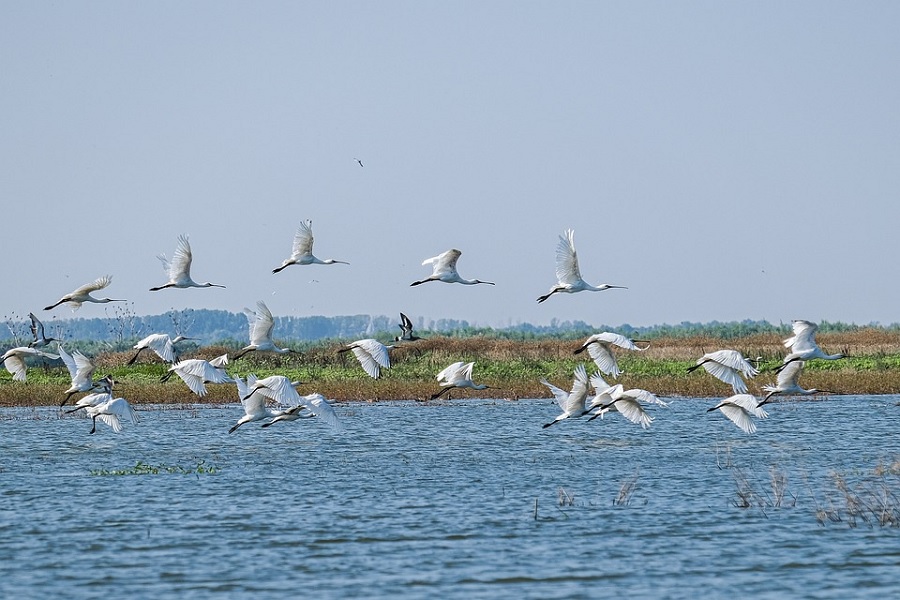Eco-Friendly Travel Destinations: Best Places for Sustainable Adventures

As the world becomes more environmentally conscious, travelers are increasingly seeking destinations that prioritize sustainability and responsible tourism. Whether it’s exploring pristine natural landscapes, staying at eco-resorts, or opting for green cities with eco-friendly infrastructure, eco-friendly travel provides a way to enjoy the beauty of the world while minimizing your environmental impact. This article explores some of the best eco-friendly travel destinations that champion sustainability, from national parks to green cities, and offers tips on how to travel responsibly.
The Rise of Sustainable Travel
Sustainable travel isn’t just a trend; it’s a necessary step toward preserving the planet for future generations. It involves conscious decisions, from staying at eco-lodges that minimize waste to choosing destinations that protect their natural resources. Eco-friendly travel helps conserve biodiversity, reduces carbon footprints, and supports local communities, all while offering travelers memorable experiences.
Best Eco-Friendly Travel Destinations
1. Costa Rica: A Leader in Eco-Tourism
Costa Rica is widely regarded as one of the world’s most eco-conscious destinations, boasting rich biodiversity and a strong commitment to sustainability. The country has set a global example by integrating conservation efforts into its tourism sector. Over a quarter of Costa Rica’s land is protected in national parks, reserves, and wildlife refuges. Travelers can explore pristine rainforests, visit endangered species in protected habitats, or relax in eco-resorts that prioritize sustainability.
Eco-Friendly Highlights:
National Parks: Manuel Antonio National Park, Corcovado National Park, and Tortuguero National Park are renowned for their biodiversity.
Eco-Resorts: Stay at eco-lodges like Lapa Rios, where sustainability is prioritized, from solar power usage to waste management practices.
Wildlife Watching: Participate in eco-friendly wildlife tours to see sloths, sea turtles, and rare birds, ensuring that these tours have minimal impact on the animals’ habitats.
2. Sweden: Eco-Friendly Cities and Green Infrastructure
Sweden is a pioneer in sustainability, and its cities reflect this commitment. Stockholm, Gothenburg, and Malmö are all examples of urban areas that have integrated sustainability into their daily operations. From efficient waste management systems to renewable energy sources, Sweden's green cities are a model for other urban areas around the world.
Eco-Friendly Highlights:
Green Cities: Stockholm has been named the European Green Capital due to its green spaces, clean energy policies, and efficient public transportation system.
Sustainable Transportation: Sweden boasts a well-developed network of public transportation, including electric buses, trams, and trains, making it easy to travel sustainably.
Sustainable Accommodation: Many hotels and guesthouses in Sweden have earned environmental certifications, ensuring they follow strict sustainability standards.
3. Bhutan: The Carbon-Negative Kingdom
Bhutan stands out as a leader in sustainability, not only because of its carbon-negative status but also due to its commitment to preserving its natural environment. The country’s government has a clear policy of environmental preservation, and it requires all tourists to pay a fee that helps fund sustainable initiatives, including conservation programs.
Eco-Friendly Highlights:
Carbon-Negative Status: Bhutan absorbs more carbon dioxide than it produces, making it one of the few countries to have a net positive impact on the environment.
Sustainable Tourism: Bhutan has a policy of “high-value, low-impact” tourism, which ensures that only a limited number of visitors come to the country each year, helping to reduce the environmental and cultural impact.
Eco-Friendly Accommodation: Stay at eco-friendly hotels like the Six Senses Bhutan, where environmental impact is minimized, and nature is celebrated.
4. New Zealand: Eco-Conscious Outdoor Adventures
New Zealand is famous for its stunning landscapes and commitment to environmental conservation. The country’s national parks, lakes, and forests are not only beautiful but also incredibly well-preserved. New Zealand has made significant efforts to promote sustainable tourism, from eco-friendly accommodations to conservation programs that protect its unique wildlife.
Eco-Friendly Highlights:
National Parks: Fiordland National Park and Tongariro National Park offer some of the most breathtaking landscapes in the world, with eco-tourism practices in place to protect these areas.
Sustainable Activities: Opt for eco-friendly activities like hiking, cycling, and kayaking, which have minimal impact on the environment.
Green Accommodation: Stay in eco-lodges or holiday parks that utilize sustainable building practices, energy-saving systems, and waste reduction strategies.
5. Norway: A Model for Sustainable Tourism
Norway’s breathtaking fjords, mountains, and coastal landscapes are complemented by its sustainable tourism initiatives. With a commitment to preserving its natural beauty, Norway has developed policies that ensure responsible travel while maintaining its unique ecosystems.
Eco-Friendly Highlights:
Sustainable Travel: Norway encourages travelers to use its efficient, eco-friendly public transportation system, including electric ferries and trains.
Conservation Efforts: The country is actively involved in protecting its natural wonders, such as the Arctic wilderness and coastal areas, through conservation initiatives.
Eco-Friendly Hotels: Many hotels and lodges in Norway are environmentally certified and incorporate green practices, such as energy-efficient lighting, water conservation, and waste management.
6. Kenya: Responsible Safari Experiences
Kenya is not only home to iconic wildlife but also to numerous conservation programs that integrate eco-tourism with wildlife protection. The country has an abundance of eco-lodges and responsible safari tours that minimize environmental impact while supporting local communities.
Eco-Friendly Highlights:
Wildlife Conservation: Kenya’s Maasai Mara, Amboseli, and Tsavo National Parks focus on preserving wildlife habitats through sustainable tourism practices.
Eco-Safari Lodges: Stay at eco-lodges like the Giraffe Manor or Saruni Lodge, where sustainability and conservation efforts are top priorities.
Community-Based Tourism: Many safari operators are involved in supporting local communities and providing sustainable income through responsible tourism.
How to Travel Sustainably
While visiting eco-friendly destinations is an important step in sustainable travel, there are several things you can do as a traveler to further reduce your environmental impact:
Choose Eco-Friendly Accommodation: Look for eco-lodges or hotels with green certifications, like the Green Key or EarthCheck.
Use Public Transportation: Instead of renting a car, consider using public transport or eco-friendly travel options like bikes, electric vehicles, or walking.
Support Local Businesses: Purchase locally-made products and dine at restaurants that prioritize sustainable practices, such as using organic, locally-sourced ingredients.
Respect Nature and Wildlife: Always follow local guidelines regarding wildlife viewing and environmental protection to minimize your impact on natural ecosystems.
Conclusion
Eco-friendly travel is about more than just visiting beautiful destinations; it’s about making conscious choices to help preserve the planet. By choosing destinations that prioritize sustainability, like Costa Rica, Sweden, Bhutan, New Zealand, Norway, and Kenya, travelers can have an unforgettable experience while supporting conservation efforts and minimizing their environmental footprint. Whether exploring pristine forests, enjoying wildlife safaris, or immersing yourself in green cities, sustainable travel allows you to experience the world in a way that benefits both you and the planet.
























